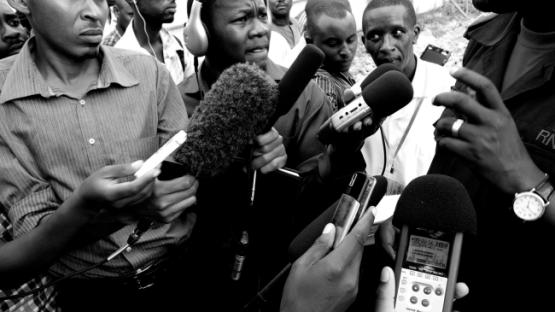Rwandan government expands stranglehold on privacy and free expression

Last week the Rwandan government tightened its grip on citizens when the parliament's lower house adopted legislation that sanctions the widespread monitoring of email and telephone communications.1 The bill is now awaiting Senate approval.
The law, an amendment to the 2008 Law Relating to the Interception of Communications,2 will empower the police, army and intelligence services to listen to and read private communications, both online and offline, in order to protect "public security", that all-encompassing indemnifier too often invoked to justify unnecessary infringements of human rights. In the name of "public security" Rwandan police and security forces will be able to spy on journalists, human rights defenders, lawyers and activists who criticise or oppose the Kagame regime. If someone has been identified as having visited "subversive" websites - including those of opposition political parties like the exiled Rwanda National Congress - they may face tough prison sentences.
Under the amended law, all communication service providers (CSPs) will be required to implement the technical capability to enable communications interception upon request.3 The Rwandan government will purchase the necessary technology and equipment for the CSPs, giving government agencies direct control over all communications nationwide. One report notes that this technology will include the use of 'keyword' scanning,4 in which mass surveillance of communications is undertaken in order to identify who is talking about specific issues.
In effect, the legislation will subordinate the right to privacy to poorly defined concerns of "public security". While the Rwandan government points to the adoption of similar legislation in other Commonwealth countries, the employment of mass surveillance and censorship powers in a country that still lacks fully democratic institutions and strong judicial safeguards endangers individual rights and freedoms. In order to justify restrictions on rights such as privacy or free expression, governments must show that such restrictions are necessary to and proportionate in achieving their aim, and that they are subject to legal safeguards and oversight.5 Unfortunately, such safeguards seem to be either ineffective or non-existent in Rwanda, a country in which there is significant government control of political life and public discourse.
This surveillance law is the latest in a series of similar legislative and policy steps, which have included enacting laws that criminalise "divisionism" and "genocide ideology" - worthy in intention but in effect serving to criminalise legitimate political critique and dissent.6 In advance of the August 2010 presidential election, all serious challenges to Kagame, the incumbent, were prevented from running by tactics that included registration bans,7 and arrests. The government was also suspected of ordering assassinations in the lead-up to the last election.8 Only pro-government protests are permitted, and civil society registration and reporting procedures are prohibitively onerous, hindering the evolution of real public debate.
After the devastation experienced by Rwanda throughout decolonisation and into the mid-nineties, its reconstruction has been characterised by a focus on national unity, with poor attention to individual freedoms. The spectre of the 1994 genocide looms large in the national psyche, and the fear of a repeat event has given birth to political and social norms that tend towards pervasive government control and the homogenisation of the public discourse. To a significant extent, Western philanthropy has been complicit in the adoption of such policies; donor aid has flowed freely from the United States and Europe since 1994, in what many construe as an effort by the West to absolve itself for its failure to act to prevent the genocide.9 Until recently, when donors began withdrawing their aid en masse in response to a UN report that Kigali is funding the rebellion in eastern Democratic Republic of the Congo,10 Rwanda was receiving up to a billion dollars in aid annually. 11
The latest measures to stymie public debate and critique come at a politically fragile time, as international criticism of Kagame's regime accelerates, and calls for the International Criminal Court to investigate Kagame's role in the conflict in the DRC abound.12 No discussion about Rwanda's present role in the DRC can be divorced from debates about the 1994 genocide and the role of the Rwandan Patriotic Front therein. Such debates are no less incendiary now than they were two decades ago, but they are key to the country's efforts at long-term peace-building and reconciliation. And yet with the introduction of new surveillance and censorship legislation, the Rwandan government has sadly compromised the chance for vibrant and free debate.
Freedom of expression and privacy of communications are the building blocks of any genuinely democratic state, and are conducive to - not incompatible with - the preservation of public security. Rwanda needs a strong legislative framework that strikes the right balance between protecting individual rights and ensuring public security, with appropriate judicial safeguards in place. Until that time, mass surveillance and censorship capabilities will not only expose the Rwandans to abuses of their rights to privacy and free expression, they will also further undermine the public debate and political discourse essential to Rwanda's democratisation.



